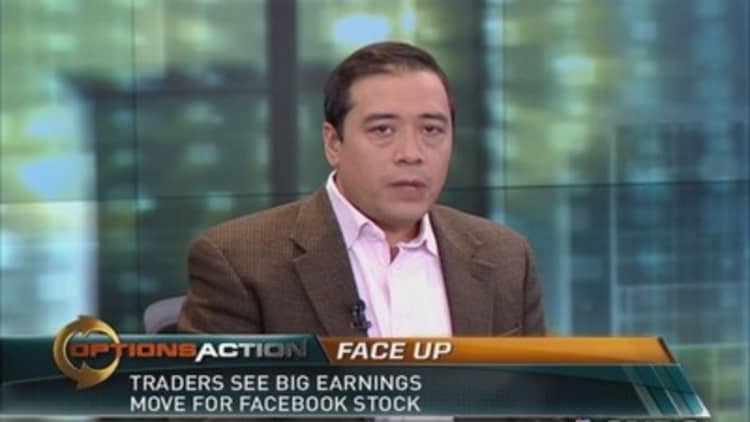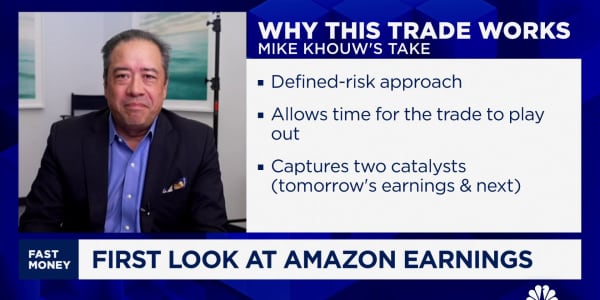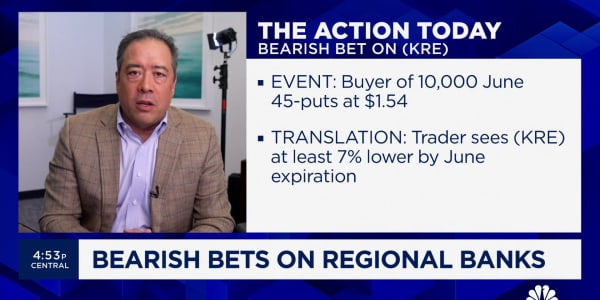Twitter executives and bankers are taking pains to ensure that the social network's IPO will not look like Facebook's in May 2012. But given how many winners the latter created, maybe Twitter should rethink that view.
Facebook raised $16 billion in its Nasdaq-listed IPO, which valued the company at $104 billion. That valuation rose at the last minute, from a target of $77 billion to $96 billion earlier that month.
The IPO was marred by technical problems, and Facebook didn't enjoy the day-one pop many had expected. The shares hit $45 briefly, then closed the day just 23 cents above the IPO price of $38—and that was thanks only to underwriters forced to prop them up.
The stock proceeded to lose more than half of its value over the next four months.
Twitter appears to be doing all it can to avoid that fate. As Max Wolff of ZT Wealth said, "This is in every way the anti-Facebook IPO."
First, Twitter has chosen to list on the NYSE, even though the Nasdaq has traditionally been considered the exchange for hot tech companies. This decision was most likely informed by the fiasco that unfolded during Facebook's premiere, when problems at the Nasdaq left investors wondering how many shares they had actually received. (The exchange recently agreed to pay $10 million to settle Securities and Exchange Commission charges related to errors and agreed separately to pay up to $62 million to compensate brokers.)
More significantly, Twitter's IPO is much smaller and perhaps more conservative. The company is valuing itself at $11 billion and looking to raise $1.2 billion to $3.4 billion. While acknowledging that a direct comparison is difficult because Twitter is not profitable, Wolff points out that it is valuing itself at 10 to 12 times forward revenue, in contrast to the 20 times revenue at which Facebook went public.
"Twitter is clearly trying to hold back some firepower," said Newedge senior director Larry McDonald, who writes at LawrenceGMcDonald.com. "They want people to make money on the deal, so they're pricing this thing pretty cheap."

But perhaps Twitter is pricing itself too cheaply for its own good.
On the whole, Facebook's public offering "has been very successful," said Jeff Solomon, the CEO of Cowen & Co., which was an underwriter on that offering. "The company raised the right amount of capital, and some shareholders got to take money off the table."
And long-term investors have done pretty well, too.
After shares fell to a low of $17.55 in September 2012, Facebook hit its stride. Proving that it could make money from mobile advertising, it tripled in value.
As of Monday's close, the stock is up 32 percent since the IPO, besting the 's 30 percent rise and far outperforming Apple shares.
On the first day of trading, "the market reacted to the oversupply relative to what the market could beat at that instant," Solomon told CNBC.com. "But now they've had a couple of quarters of good operating statistics," and the stock has responded in kind.
Of course, expectations outstripped the reality.
"A lot of people who bought it thought they were going to make 100 percent," Wolff said. "Plenty of people have made money in Facebook, but not around its IPO, and there are still folks who are smarting."
After all, it's not just about what you get but what you expect. And perhaps buying into an IPO looking for a pop isn't the smartest investment strategy in the first place.
"You should not be buying IPOs if you're waiting for the pop," Solomon said. When you buy into an IPO, "you're backing management," he added. "The two questions are, one, are they in the right space? And, two, is management going to be a good shepherd of my capital?"
If Twitter's executives believe that they are in the right space, then instead of fearing the Facebook comparisons, perhaps they should embrace them and become more aggressive in raising the capital that they soon will be shepherding.
—By CNBC's Alex Rosenberg. Follow him on Twitter @CNBCAlex.
Follow Options Action on Twitter @CNBCOptions.






